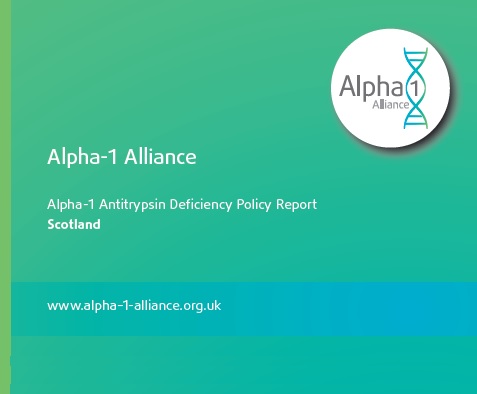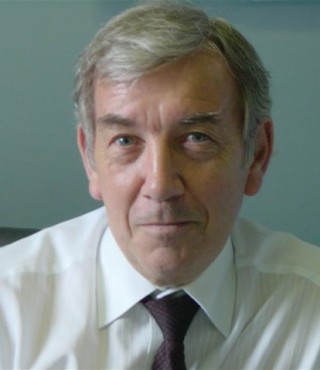Alpha-1 Global launches website, linking Alphas worldwide
Today marks an exciting milestone for the Alpha-1 community worldwide: The Alpha-1 Global website alpha-1global.org is up and running.

The site provides a platform for Alphas to communicate and collaborate — a central network for exchange of news, information and ideas on improving Alpha-1 awareness, detection and access to care around the world.Everyone is encouraged to become a part of Alpha-1 Global:
- Sign up for the discussion platform via the special link on the Welcome page. Create your user name in the format firstname.lastname (for example: linda.smith).
- Even if you aren’t an active participant in discussions, the more people who sign up, the more successful and cohesive the global Alpha-1 community will become.
- Put a link to alpha-1global.org on your website or social media sites to show your support and affiliation.
The website is the culmination of more than a year of planning. In April 2013, Alpha-1 leaders from 23 countries gathered at the 4th International Alpha-1 Patient Congress in Barcelona, Spain. Celebrating 50 years of progress, they agreed the next vital step was to create an organization fostering a strong global community. Alpha-1 Foundation President John Walsh agreed to put Foundation resources behind the initiative, and Alpha-1 Global was formed. Its new director, Gonny Gutierrez, recently answered questions about the organization.
Q. A united resolve to stay connected as a global Alpha-1 community came from the Congress in April 2013. How long afterward was Alpha-1 Global launched?
The initiative launched when I was hired in September 2013, less than five months after the Barcelona Congress. The Alpha-1 Foundation really followed through on its promise to provide leadership and resources to assist in building a cohesive network of organizations and patient groups, as well as building a communications platform for the Alpha‐1 community worldwide.
Q. What is your background? What interested you about becoming the director?
I have worked for international nonprofits for more than 25 years and have directed a variety of programs and large events for different charitable organizations. My foremost interest is in strategic networking and coalition-building, and I enjoy bringing together people with diverse strengths and cultural backgrounds to accomplish a mission. Becoming the director of A1G promised to merge my professional experience, cultural background and temperament. I believe that language barriers don’t mean communication barriers.
Q. What are your major goals this year, and the path to reach them?
Our overall goal is to establish a global communication platform for Alpha-1 patient groups and organizations. This year I’ve built relationships with leaders from associations around the world and besides meetings face-to-face, I usually connect via Skype. That’s the wonderful thing about our information age: despite busy schedules and time zone differences, Alpha-1 Global can be open for business 24-7.
The Alpha-1 Global website, now be up and running, includes a discussion forum open to anybody who registers. Alpha-1 leaders from different countries will monitor the topics.
The final goal for 2014 is to create a resource library that includes materials from different stakeholders, including industry partners, to build a comprehensive advocacy toolkit that can be adapted by Alpha-1 representatives worldwide. We will categorize countries by augmentation therapy licensure and focus foremost on assistance to countries that have expected licensure of drugs in the next year or two and assist them with mobilization and action steps.
Q. What roadblocks do you see in achieving your goals?
Since we are dealing with volunteer leadership from different countries and continents, myriad healthcare systems, and a variety of views on treatments for Alpha-1, the community presents an interesting scenario. It is essential that Alpha-1 Global functions as a central point of contact.
Q. How are countries participating in Alpha-1 Global?
If augmentation therapy is available in a country, we ask leadership to share their knowledge of how they set up their health management system and share action plans that gained them access to care. After obtaining this from different sources, we can provide step plans for associations in countries that are ready to mobilize their communities and campaign for access to care and reimbursement. By providing these resources within a collaborative network, the entire Alpha-1 community will be served. My experience so far is that most leaders are open to participating on this level, as long as we are willing to understand the realities that Alpha-1 communities face on a local and regional level.
Q. Tell us about the Global Steering Committee.
The committee currently consists of seven dedicated members: Shane Fitch (Spain), Gunhil Norhave (Denmark), Karen North (UK), Catarina Pyrrait (Portugal), Steve Knowles (Australia), Frank Willersinn, MD (Belgium) and John Walsh (U.S.). Our first face-to-face meeting took place during the National Education Conference in Kansas City, early June. A second meeting is planned following the European Respiratory Society Congress in Munich (Sept. 6-10). We’ve built a very close team committed to Alpha-1 Global’s mission.
Q. What do you hope to accomplish in the next committee meeting?
Our objectives are to develop a 2015-2017 Strategic Plan and to outline the 2015 Alpha-1 Patient Congress program. We will also create an Alpha-1 Global meeting and conference attendance schedule to ensure we have expert representation at key meetings around the world.
Q. Describe how the website serves the global community.
The site, alpha-1global.org, serves as a hub for global communication. In a year, this site will probably look very different, as people around the world will have had a chance to add their thoughts, share ideas, and evaluate the need for expansion into different languages. We also hope to develop a comprehensive communication structure with our network of association leaders and provide additional awareness and campaign resources.
Q. What is the relationship between Alpha-1 Global and the Alpha-1 Foundation?
Alpha-1 Global is an independent program under the fiduciary umbrella of the Alpha-1 Foundation. The Global Steering Committee approximates a board serving the interests of Alpha-1 Global. We are very intentional about being inclusive of all continents and develop strong ties with local leadership around the world.
Q. Tell us about the agenda for the 2015 Patient Congress and Research Conference, and how they fit with goals of Alpha-1 Global.
The Congress will take place April 9-11, 2015 in Barga, Italy. The hotel facilities can host the entire Congress under one roof. It will be set up as a 2-day/3-night all-inclusive event, with updates on Alpha-1 developments from medical professionals and researchers from around the world. There will also workshops and hands-on training on how to organize Alpha-1 communities to advocate for access to care on a local level. All components will be very intentional in working to build a unified global Alpha-1 community.
Source: alpha-1 GLOBAL 27/08/2014
 The Alpha-1 Alliance today released its policy report on the current level of care for Alpha-1 patients in Scotland. The report draws upon the findings of a survey of Scottish Alpha-1 patients, relatives and carers conducted by the Alliance in 2013 – the first of its kind in Scotland. It highlights both the high level of unmet medical need for Alpha-1 in Scotland and how, despite high levels of existing expertise in the condition, patients are all too often let down by poorly coordinated and inefficient service provision.
The Alpha-1 Alliance today released its policy report on the current level of care for Alpha-1 patients in Scotland. The report draws upon the findings of a survey of Scottish Alpha-1 patients, relatives and carers conducted by the Alliance in 2013 – the first of its kind in Scotland. It highlights both the high level of unmet medical need for Alpha-1 in Scotland and how, despite high levels of existing expertise in the condition, patients are all too often let down by poorly coordinated and inefficient service provision.

 A Highland mother-of-five with just 24% lung capacity has climbed a steep rock face at Edinburgh Castle to place a huge Yes sign in full view of thousands of people.
A Highland mother-of-five with just 24% lung capacity has climbed a steep rock face at Edinburgh Castle to place a huge Yes sign in full view of thousands of people.
 The European Respiratory Society will honor Robert Stockley, MD, with its Presidential Award at the
The European Respiratory Society will honor Robert Stockley, MD, with its Presidential Award at the 
 In April, NHS England established a specialised task force to make some immediate improvements to the commissioning of specialised services after a budget overspend of £400 million. Originally scoped for three months, the task force has now been extended to run for a further three months, resulting in a delay of the publication of NHS England’s five-year strategy for specialised services.
In April, NHS England established a specialised task force to make some immediate improvements to the commissioning of specialised services after a budget overspend of £400 million. Originally scoped for three months, the task force has now been extended to run for a further three months, resulting in a delay of the publication of NHS England’s five-year strategy for specialised services.